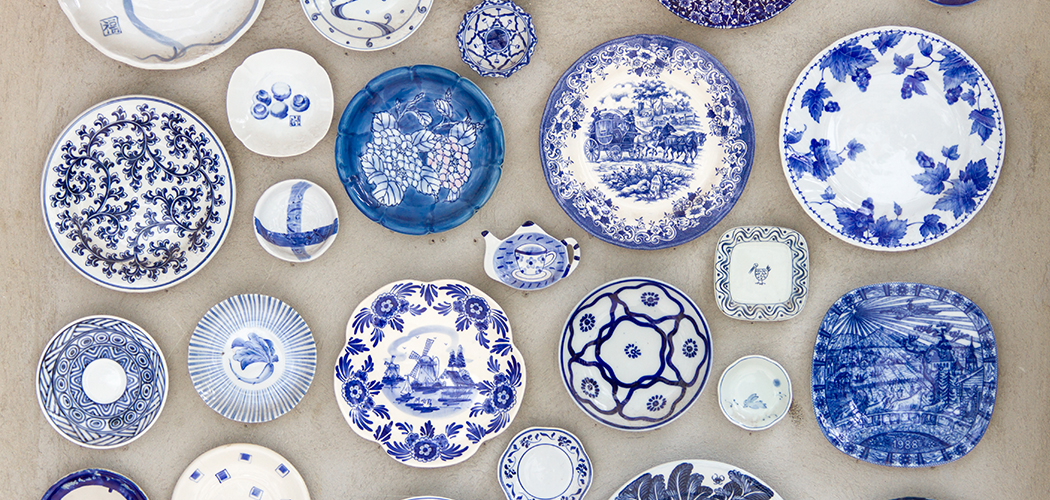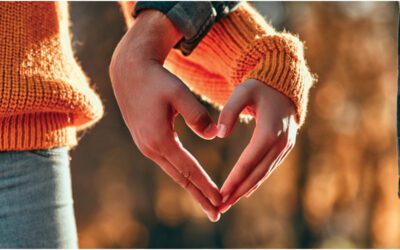[title subtitle=”words: Marla Cantrell”][/title]
It’s no time to talk about love, I know that for sure. I’ve just hung up from having a fight with the phone company over my sky-high bill, and Nick’s found out his hours got cut in two by the builder he works for. Plus, me and Nick are only friends. I met him while floating the Buffalo River, just after I’d moved to Jasper, right after my twenty-fourth birthday when I was looking to get away from certain things. That day, I tumped over my canoe, and he jumped in to save me. He had a girlfriend then, built like a column, with hair so black it glowed in the right light.
Her name was Louisa, but Nick called her Louie. She gave me one of her t-shirts to wear, and I became their friend. But that was two years ago, and now she’s moved away to be near her daddy, who’s sick, and her mama, who won’t take good care of him. Nick wanted to go with her, but she said no thank-you. And by and by, that was that.
Right now, Nick and I are sitting in lawn chairs outside his house out in the country. The April sun is flittering through the trees, and we’ve each snagged a beer out of his fridge. “I don’t know how I’ll make it,” Nick says. “Twenty hours a week barely covers my truck payment and groceries.”
I want to answer, but all I’m thinking is that love is a veil that drops across your face till you can’t see good. I wait a beat too long, but finally, I say, “You paint like Da Vinci, Nick. Another builder would hire you in a flash.”
Nick takes a swig. “Camilla,” he says, “I paint like Richard Petty drives. Fast and perfect. If I had more ambition, I’d leave this one-horse town and start my own company.”
“But you wouldn’t have the Buffalo,” I say, thinking about the sparkly river, about the elk you can sometimes see near the shore.
“The Buffalo,” Nick says, “where we met.” And I say, “The river where you saved me.”
We take a drink at the same time. We look straight ahead.
The trouble with a veil is that it’s bound to get ripped off. I’ve had it happen many a time. It’s better never to put the thing on.
But Nick has these arms that could lift a house. He has skin that turns gold in the summer. Eyes that hold the whole dang world when you look into them.
I do my best to snap out of it. “Let’s talk about how people remind us of food,” I say, and Nick laughs. “You are the strangest girl,” he says.
“I have dishes for everyone I know. Let me back up. Just about everybody reminds me of a dish or two. Take Mama. She’s roast and carrots and potatoes. She fixed it every Sunday when I was a kid. She’d get it ready and leave it for Daddy to slide into the oven because he never went with us. I’d sit beside her on the pew. I’d hold her hand, and sometimes I’d raise that hand to my lips and kiss it. That kiss smelled like Sunday dinner.”
I feel my throat swell, and it surprises me. I talk to Mama about once a month, and every time we get in a fight.
“And Daddy. He’s grilled cheese sandwiches with bacon, cooked in bacon grease. And pork and beans cooked in bacon grease. Over a campfire.”
Nick says, “I’ve met your daddy. I can see that.”
“Now you try,” I say, and he says, “I’m not too good with imagining.” But I push a little, and he takes a deep breath.
“Louie,” he says, and my heart breaks in two. “Louie’s a #3 Sonic cheeseburger, hold the onions. She’s rum and Coke at the racetrack on a Friday night, watching the stock-cars shoot by. Louie,” he said for a third time, “is gone.”
“See how good you did?” I say, as upbeat as I can.
Nearby, at the edge of these woods, bugs are making their rumbled sounds. When it gets quiet enough to hear, you can imagine nations of them building castles in the trees, making babies, flying kites.
I lift my hair, twist it around one hand, and let the air hit my neck. “Grandma is chicken and dressing and broccoli cheese casserole, light on the broccoli. Yeast rolls. Coconut cake.”
“Sounds like my kind of woman,” Nick says and rubs his belly. I say, “It’s your turn again.”
“My little sister Daisy is the white cheese dip from a Mexican restaurant that’s gone now. She went from her baby bottle straight to Mexican food. I can remember holding her on my lap when I was five or so, breaking off pieces of corn chips that she’d dunk in the dip. It was messy as all get-out, but I didn’t care.”
I’ve met Daisy. She’s trouble inside and out. I close my eyes to imagine what she looked like there on Nick’s lap.
“Your turn,” he says.
“My ex,” I say, and shift in the chair. In the summer, the webbing that holds this seat together will tattoo my legs, will cut across my back when I wear my two-piece. But today I’m in jeans, a soft shirt. Nothing is hurting today.
“What about him?”
“He’s the only beef stroganoff I ever made. I worked all afternoon on it, but it didn’t turn out right. I can still see him, standing at my stove, that big wooden spoon in his hand. The way his face changed when he tasted it.” I take another sip, wipe my mouth. “He flung that big skillet across the room.”
When I cry, I put everything I got into it. I hate that about me, but I do. In a split-second, Nick is kneeling at my feet, his hands on my knees. “Please don’t cry over a piece of trash like that.”
“It’s the beer,” I say, even though I haven’t finished even one. I stop for a second to make a memory of what his hands feel like on my knees, through the thick fabric of my Levi’s.
“Then let’s walk it off,” Nick says, and I wipe my eyes on the end of my shirt, and he helps me up.
We step into the woods at the edge of his property and cross a sagging barbed wire fence that was abandoned years ago. There are white flowers here and there, ones I don’t know the name of. We climb a hill, and ahead, a brown squirrel shimmies up a giant pine tree, and a pine cone falls to the earth.
“I’ve always liked squirrels,” Nick says. “Never would hunt ‘em.”
The woods here smell like earth and incense mixed together.
“I don’t know if its true, but I’ve heard squirrels live about three years,” Nick says. “They’re rodents, even though they’re kind of pretty. Same family as the rats. But rats live twenty-five years. If I’d been in charge of lifespans, I would have changed that.”
A few seconds pass. Then Nick says, “I don’t think I would have created rats at all.”
We are in a spot where the trees are so thick we can’t walk side by side. Nick takes the lead, and I say to his back, “What dish am I?”
Nick starts to turn around, reconsiders. “Well, let’s see. The second time we hung out together after Louie left, we ate at Fultz’s. You ordered a cheese pizza, which seemed like a waste of pizza to me. But when you took a bite, you closed your eyes, kind of whimpered, and then your whole body relaxed. I reached across the table for a slice, but you slapped my hand.”
He does turn around then. He says, “I never wanted anything more than I wanted that pizza.”
I look into his eyes. I was wrong about them holding the whole world. They hold the entire universe. “So, you’re saying I’m a pizza?”
“No, Camilla, I’m saying you’re everything.”
The night of the stroganoff incident, I didn’t cry. I watched the skillet leave my ex’s hand. I heard it hit the refrigerator. I felt the sauce splatter across my face. I remember thinking if I didn’t wipe it off, I might be scarred—it was that hot—but I couldn’t move.
Nobody sets out to be run over by someone who’s supposed to love them. It happens like a magic trick, little pieces of yourself disappear. Get turned into air. Until one night, while on your hands and knees, cleaning up supper off the linoleum, off walls and cabinets, you’re still thinking you might make it work.
When I finally called Mama, she told me to come home. But I didn’t want to go home. I needed to leave town, find someplace where a river flowed. Maybe one day I’d meet a good man—I still had a tiny spark of hope—and I’d wait to know his heart to be sure. I ain’t that smart, but I read every self-help book at the library, got some free counseling, and by and by, I felt like myself again.
So maybe real love isn’t a veil. Maybe it’s a telescope, letting you see way down to the heart of man. I wanted it to be so.
I touch Nick’s shirtsleeve. “I thought Louisa was your everything.”
He hooks his fingers in the belt loops of my jeans and pulls
me close. I lay my head on his shoulder, and we fit just so. “You knew Louie,” he says. “She carried a party in her pocket, and I liked that for a long time. But parties get old. And she’d go crazy on me for reasons I never figured out. I’d drop her off at her apartment, and she’d tell me she loved me. Then she’d text me till the sun came up calling me every kind of dirty dog you could think of. When she left town and didn’t want me to go with her, I felt like whatever had been sitting on my chest had got up and gone.”
Nick’s voice gets softer. “If you want to just be friends, I’ll blame all this on that whole bottle of beer I drank.”
“Did we have a beer?” I ask. Nick laughs, and it reminds me of a choir singing. He lifts my chin and kisses me. Whatever is happening between us is so powerful, the forest goes quiet. The birds still, the squirrels hush, the insects making universes take a break. Maybe me and Nick are making a universe of our own today. Today, anything is possible.




